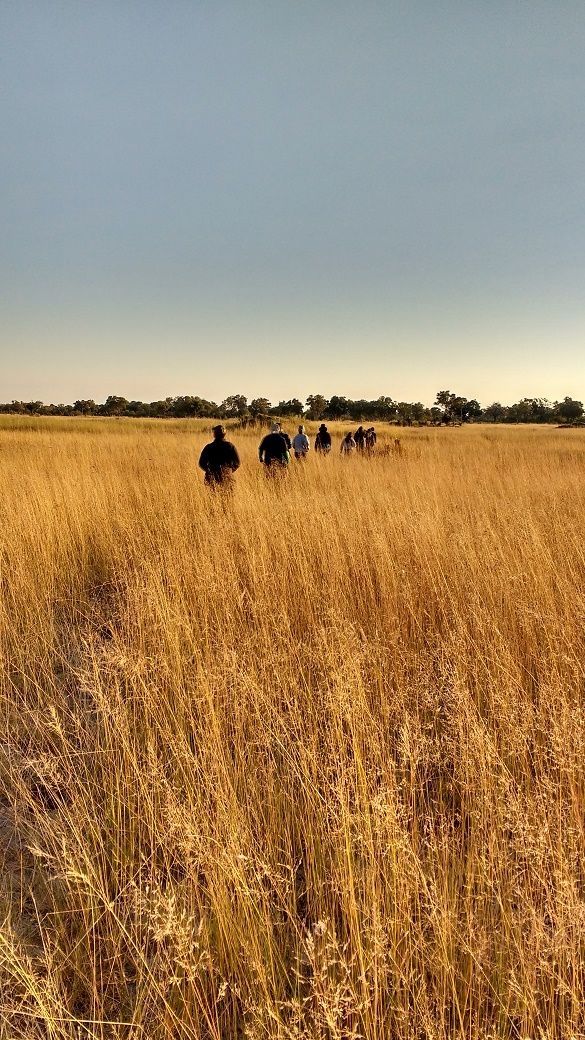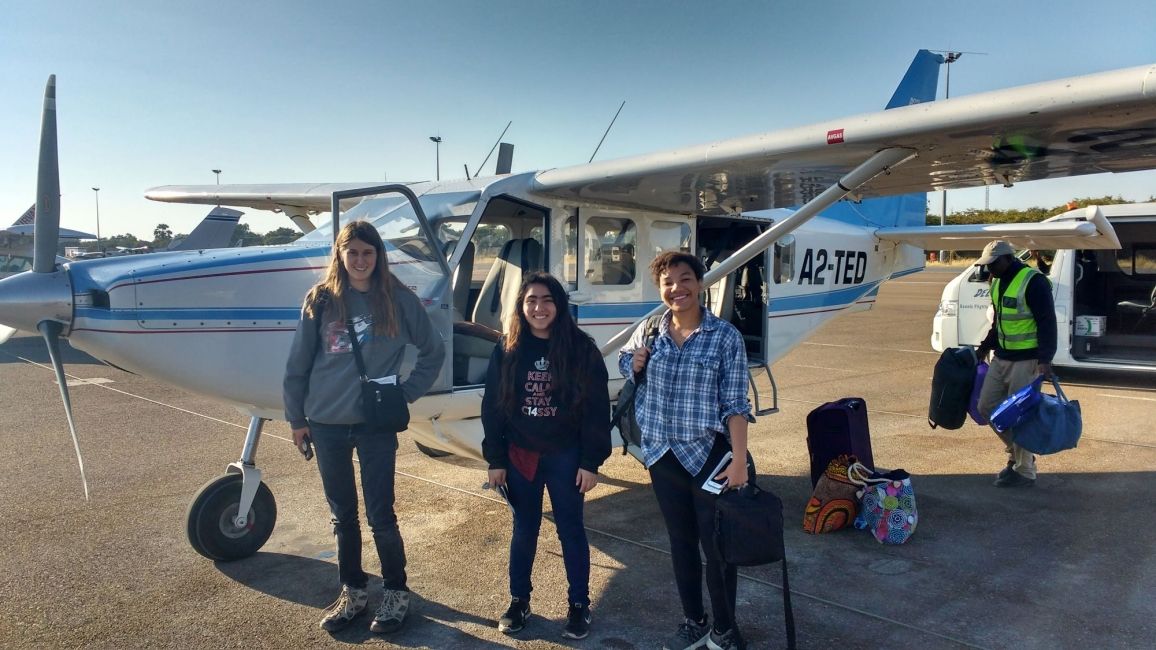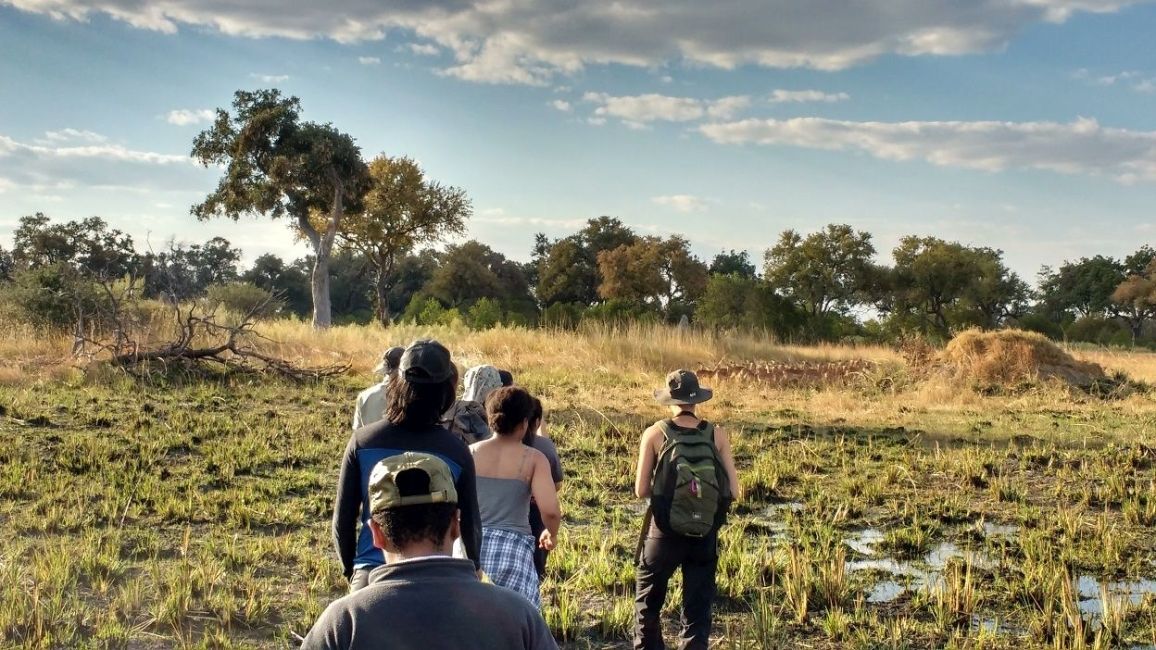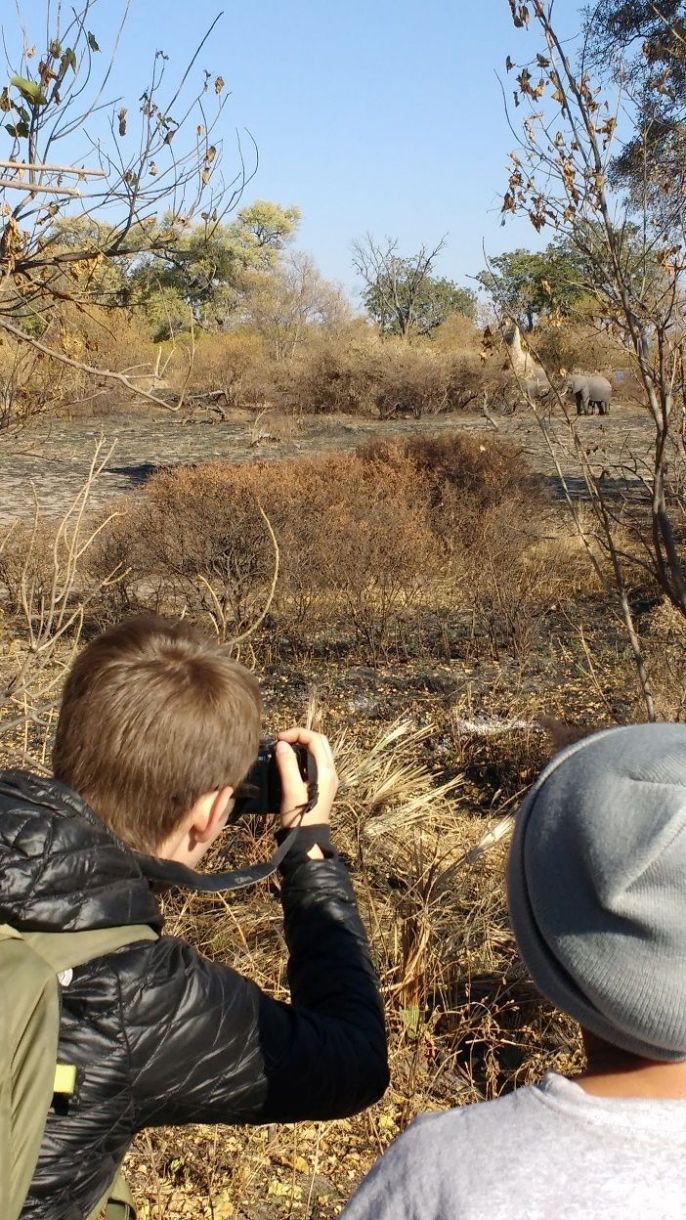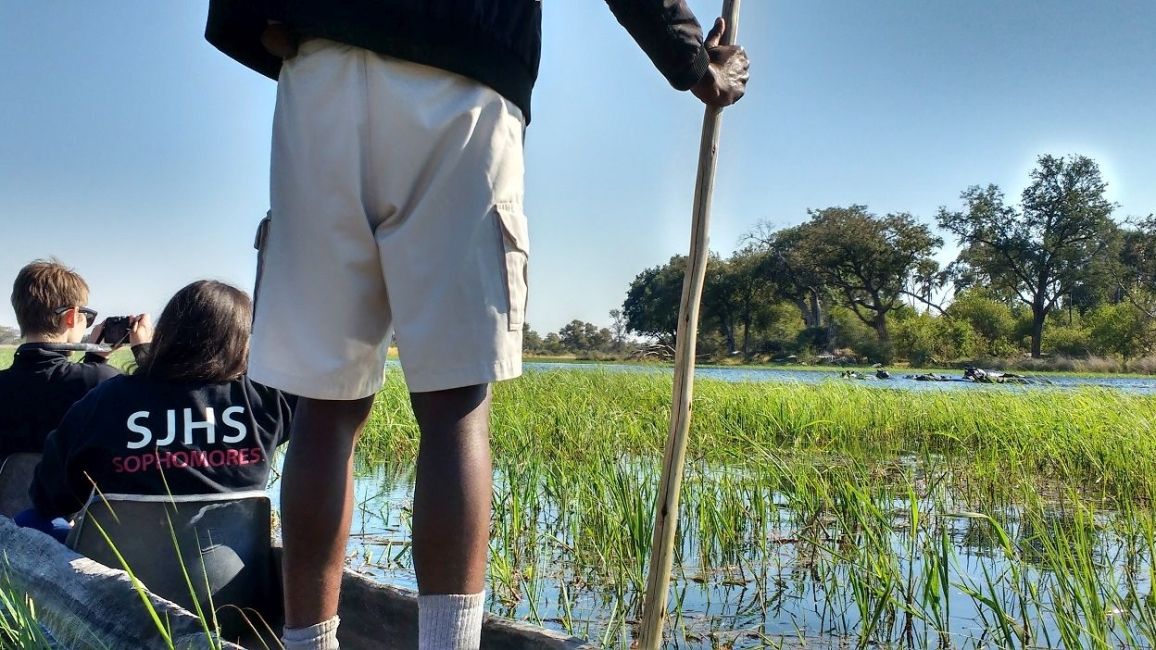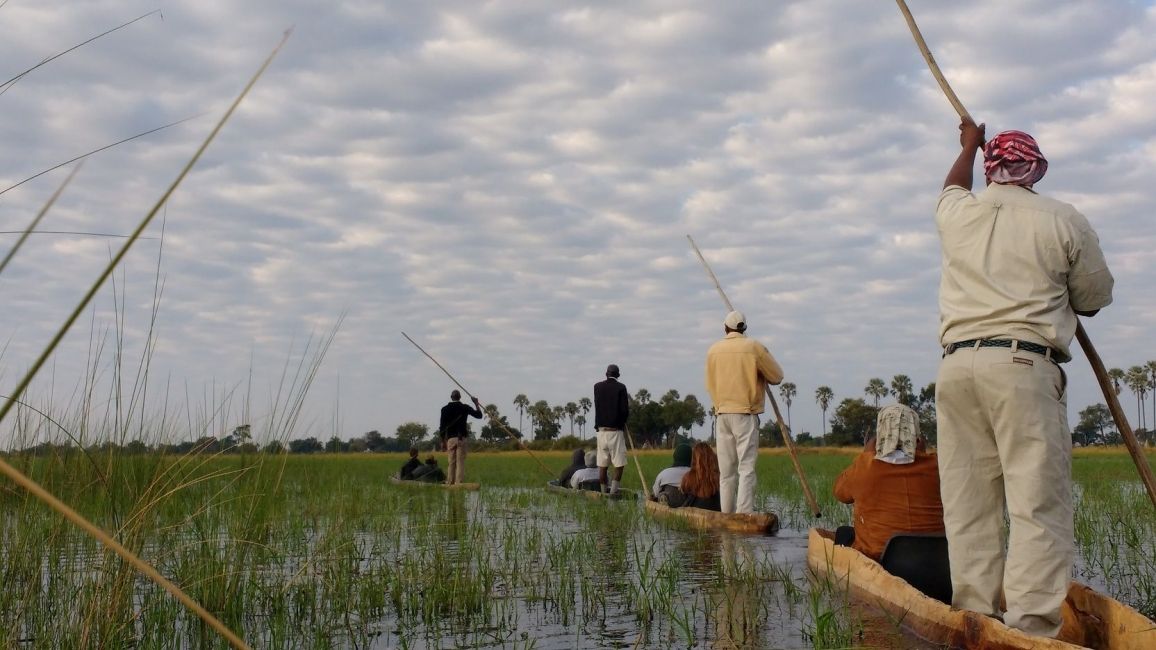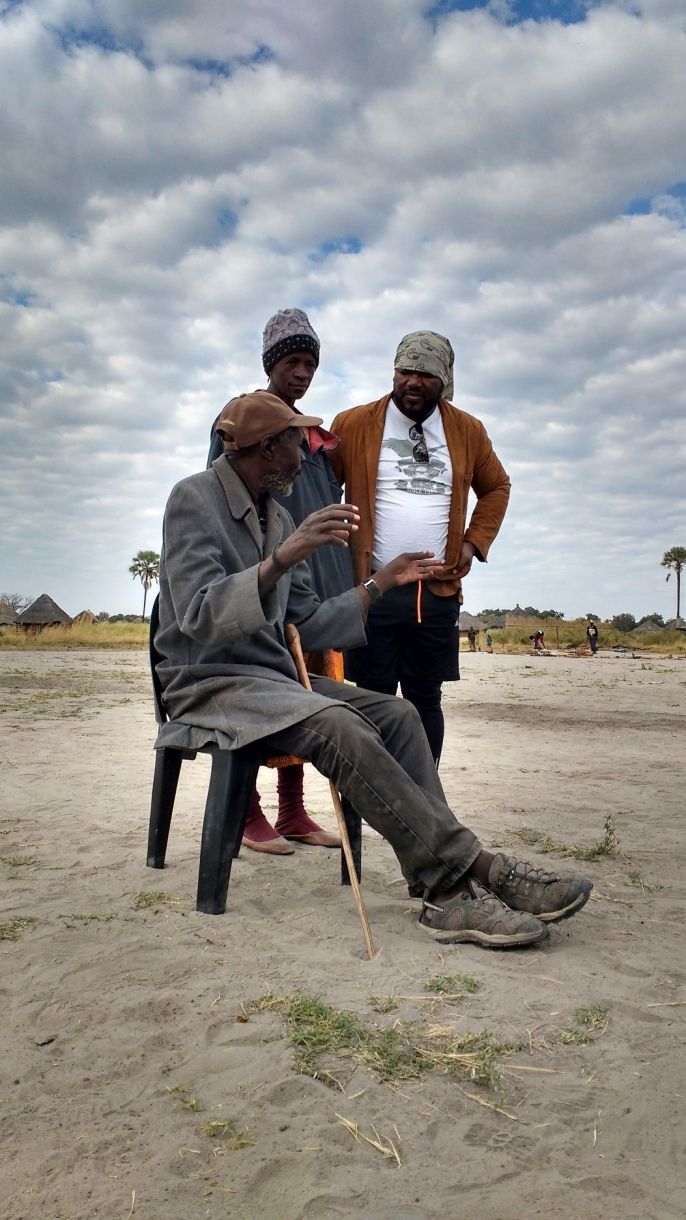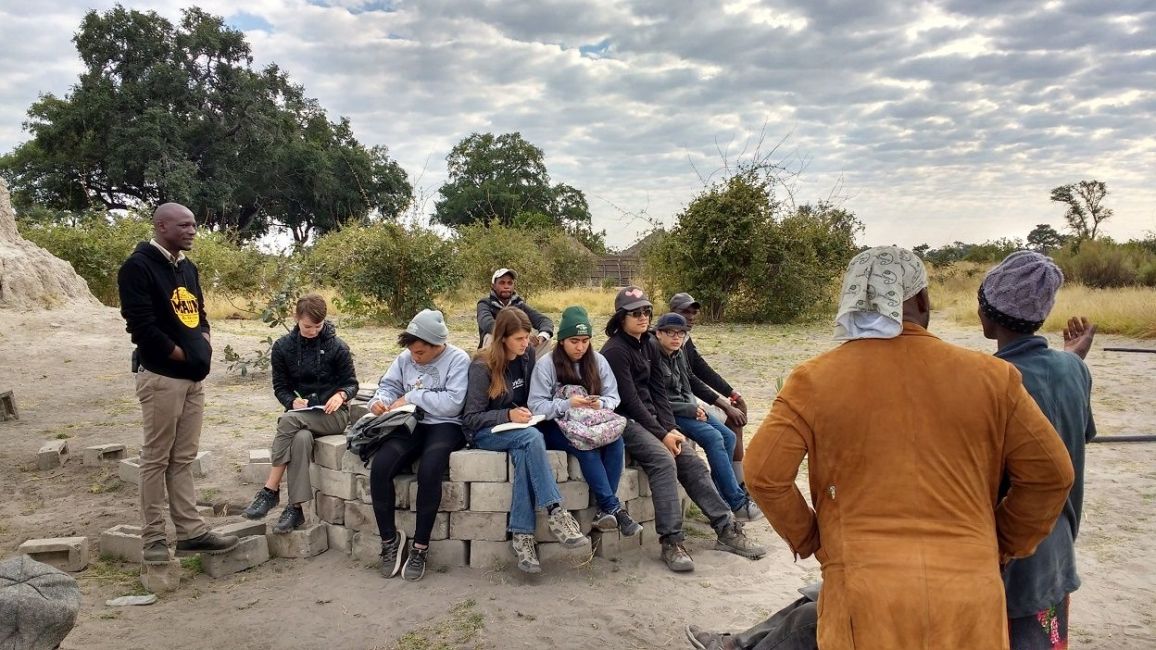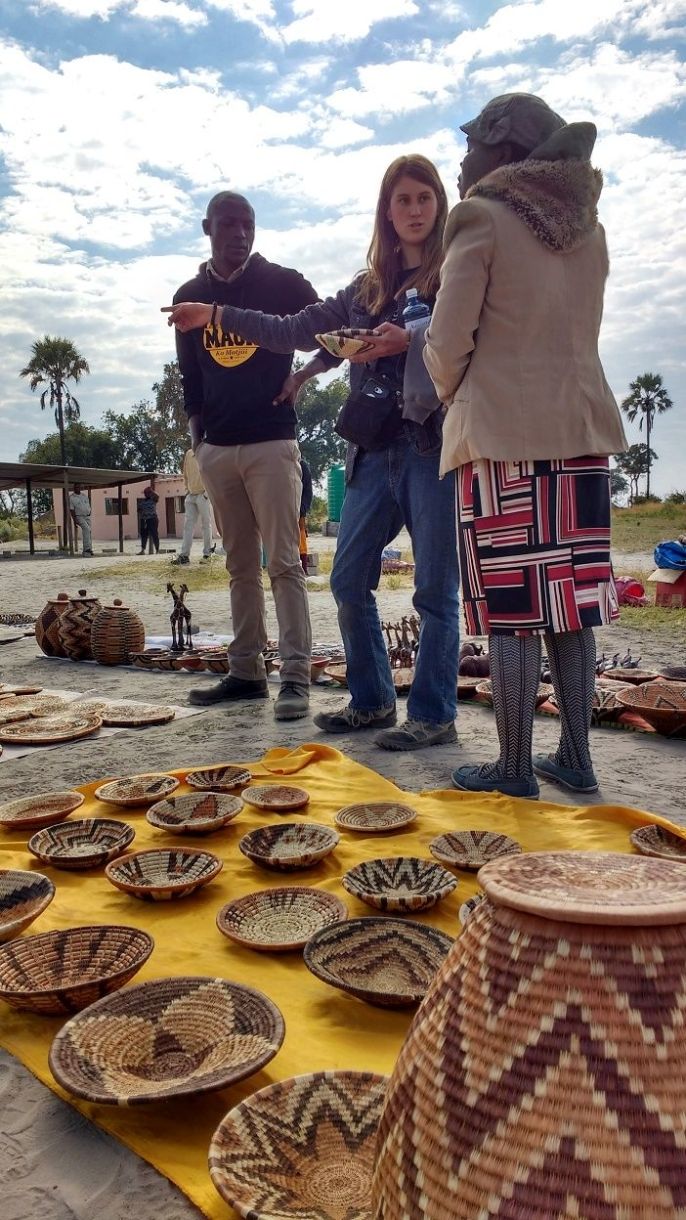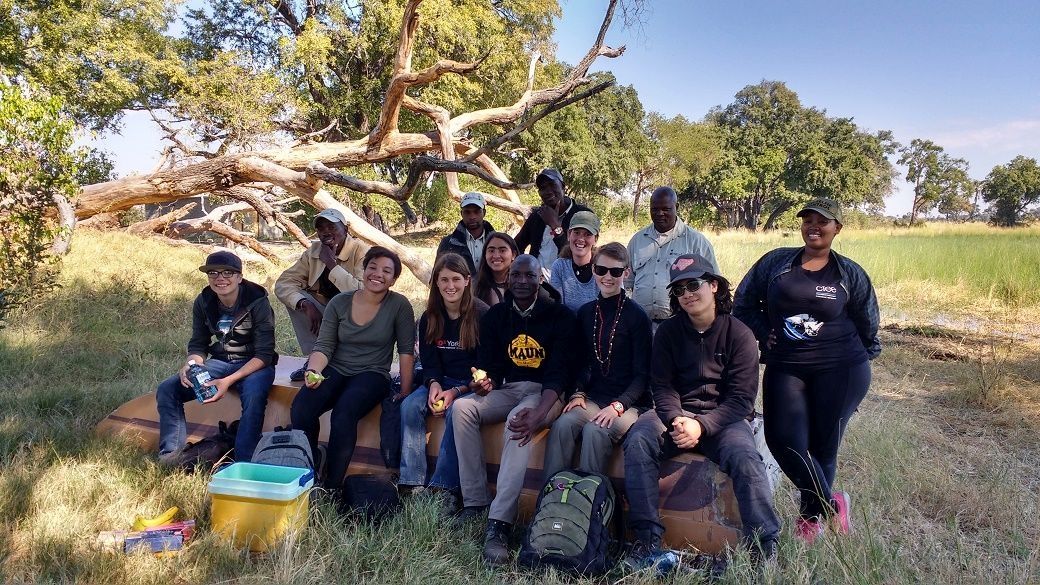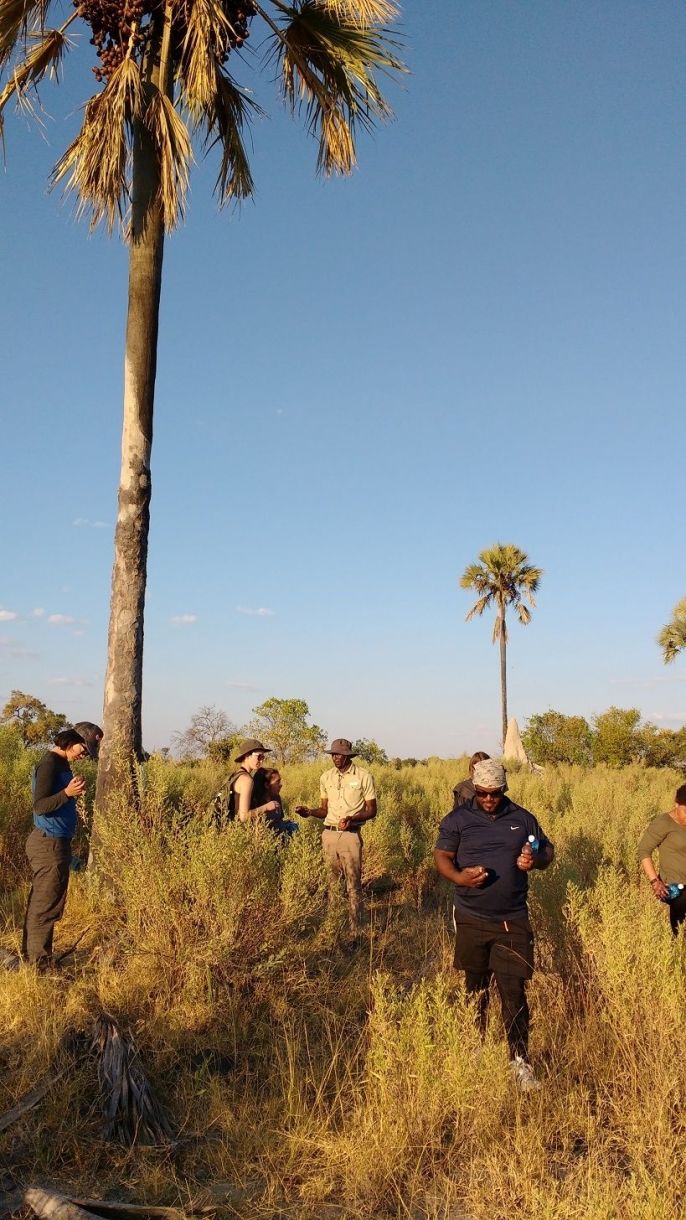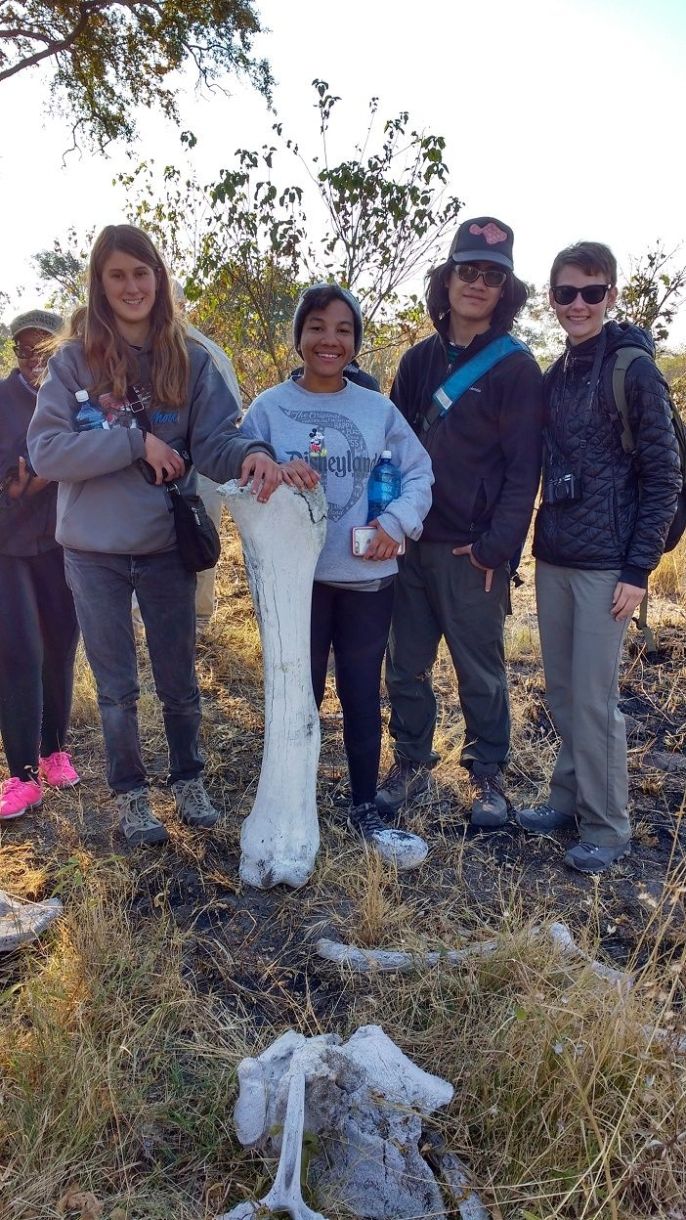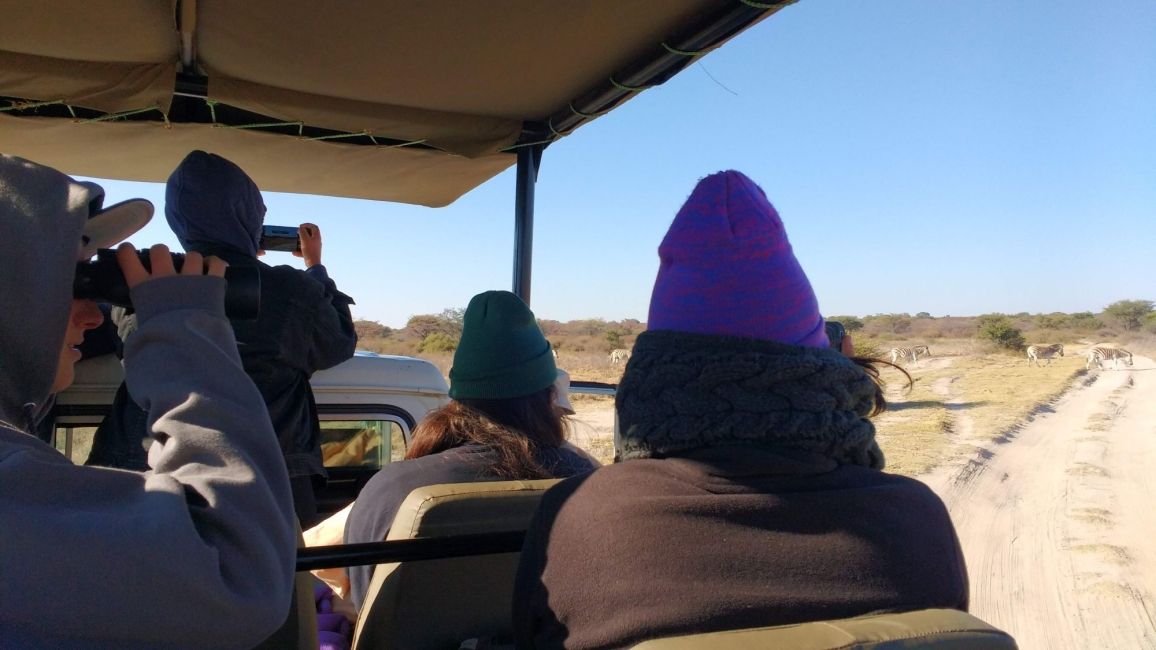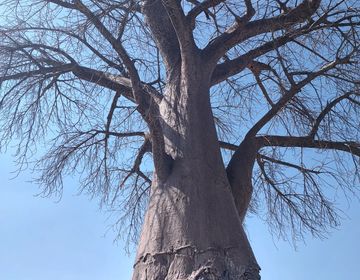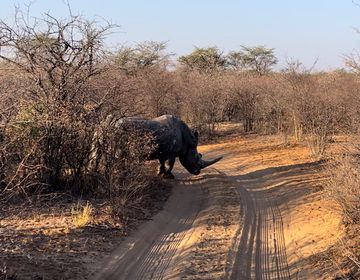Walking With Lions, Cruising With Hippos, Sleeping With Elephants
The Okavango Delta is one of the few places left where wildlife and humans exist harmoniously. As we arrived at camp we were greeted by the grunting of hippos and an elephant at the bank of the water slurping and chomping away on the reeds. The students were in awe. All that they have heard and learned about over the past two weeks had come to life right in front of their own eyes. The trip to the Okavango Delta was a way for them to see the realities of life on the delta and how humans and animals exist in the wild. They not only met with local community members and guides to understand the magnitude of living amongst wildlife, but they felt it. We took many mokoro (dug out canoe) rides alongside hippos, crocodiles and even elephants under the care of our well experienced guides. We walked into the bush to spot wildlife and observe their behaviors. On one of the walks we started tracking fresh tracks of lions, including cubs. Once we realized all the game was gone, that is usually around this time of day, we knew for sure predators were in the area. On the way back to the mokoros, heading to camp, we came across very fresh tracks of a large male lion. Our guide informed us that the lion probably heard us and ran away according to the detour the tracks made. The wildlife here knows humans and humans know the wildlife. Humans have existed amongst these animals long before modernization and conservation were even thought of. But now one of the main focuses of conservation is on the human wildlife conflict. As humans and animals are multiplying, we are sharing territories. Conservationists and local governments are trying to mitigate the loss of animals due to poaching and control populations which in turn can multiply some animal species that otherwise would go extinct. We discovered the truth behind professional hunting and how it can actually benefit the future of the wildlife. When we went to the meeting with the villagers we learned that elephants come through every day. They even joked that the elephants didn't come that day because they knew they were expecting visitors, us. These community members have accepted that the elephants may steal their jackle berries that they are drying in order to sell or may destroy their fields and even take lives. This is where conservation efforts really take place in order to put a value on wildlife so that community members do not take matters into their own hands. The topic of conservation can be controversial and complex but now our students have come and experienced the realities and felt the presence of wildlife as we shared their space peacefully. Our final night at camp it was a full moon and eerily quiet as every one retired for the night. I stayed up sitting outside my tent as I knew nocturnal life would start to come alive. Sure enough we had a very large bull elephant come through camp shaking the palm trees with his trunk to enjoy the nuts falling from atop the trees. What a magical experience this was and I was able to share it with some of the students as they woke up to the sounds of the elephant.
Share our experience by enjoying this video from when we returned home to camp one day!
Related Posts
Final Reflections and Advice for Future Students
It is our last day here in Botswana and before all the tears began, we asked students to share some of their final reflections and thoughts. Over the past three... keep reading
A Baobab that rose from the Okavango Delta
There are some things that are iconic to the continent of Africa- the big five, delicious food and the majestic Baobab tree. The Baobab is known as the tree of... keep reading
Khama Rhino Sanctuary
The first stop on our journey to the northern part of Botswana was the Khama Rhino Sanctuary; established in 1992, the sanctuary is a “community based wildlife project” aimed at... keep reading
